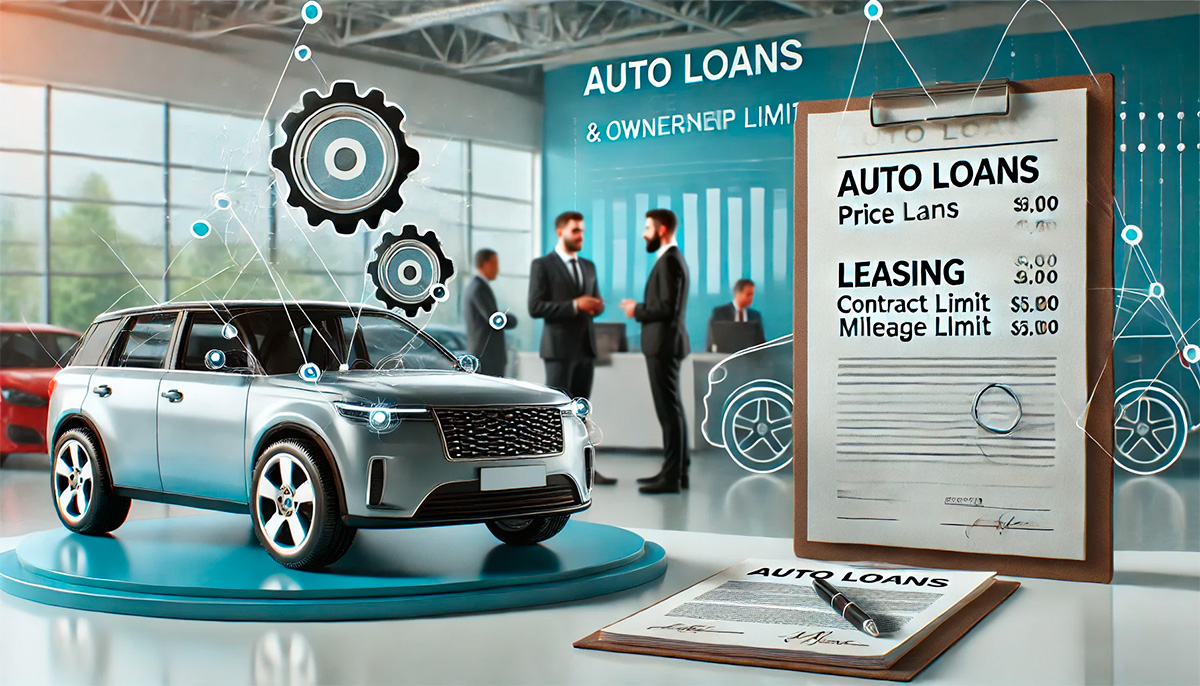The decision to acquire a vehicle often comes down to two primary options: purchasing through an auto loan or leasing. Both choices offer unique advantages and cater to different financial situations and personal preferences. Whether you value long-term ownership or prefer the flexibility of upgrading to a new model every few years, understanding the nuances of auto loans and leasing can help you make the best decision for your needs.
The Basics of Auto Loans
Auto loans are a common method of financing a vehicle purchase, allowing buyers to spread the cost over a series of manageable payments. The loan is typically secured against the vehicle itself, meaning the lender holds an interest in the car until the loan is fully repaid.
The primary appeal of an auto loan is the promise of ownership. Once the loan is paid off, the vehicle belongs to the buyer outright, providing long-term value. This option is particularly appealing to those who drive extensively or prefer to keep their cars for several years. Ownership also allows for customization, such as adding aftermarket features or modifications, without restrictions imposed by a lease agreement.
Exploring Leasing
Leasing, on the other hand, is more like renting a vehicle for a set period. Lease agreements typically span two to four years and come with lower monthly payments compared to auto loans. This is because you’re essentially paying for the car’s depreciation during the lease term, rather than its full value.
Leasing is an attractive option for those who enjoy driving the latest models with the newest features. It offers the flexibility to upgrade to a new car every few years without worrying about selling or trading in the old one. Additionally, leases often come with warranties that cover major repairs and maintenance, reducing out-of-pocket costs during the lease period.
Financial Considerations
When deciding between an auto loan and leasing, understanding the financial implications of each option is crucial. Both come with distinct cost structures and long-term impacts on your budget.
Auto loans typically require a larger down payment upfront. While this can be a financial hurdle, it reduces the overall loan amount and the total interest paid over time. Monthly payments are generally higher compared to leasing but end after the loan term, leaving you with a fully owned vehicle.
Leasing, conversely, demands less upfront cost, with minimal or no down payment required in many cases. Monthly payments are lower than those of an auto loan, making it an appealing option for those with tighter budgets. However, leases often include mileage limits and fees for excessive wear and tear, which can add to the overall cost if not carefully managed.

Flexibility and Usage
Your driving habits and lifestyle play a significant role in determining whether leasing or an auto loan is better suited to your needs. For frequent travelers or those with unpredictable mileage, ownership through an auto loan is often the better choice. With no mileage limits, you have the freedom to drive as much as you want without worrying about penalties.
Leasing, on the other hand, is ideal for individuals who drive less and prefer predictable usage. If your daily commute is short and you can stay within the mileage limits of the lease agreement, this option provides access to a high-quality vehicle at a lower cost.
Resale Value and Depreciation
Vehicle depreciation is another important factor to consider. When you purchase a car with an auto loan, you bear the full impact of depreciation. While this means the car’s value will decrease over time, it also allows you to sell or trade in the vehicle whenever you choose, potentially recouping some of your investment.
Leasing eliminates concerns about depreciation since you’re not responsible for the vehicle’s resale value. At the end of the lease term, you simply return the car to the dealer, avoiding the hassle of selling or negotiating trade-in values. However, this convenience comes at the expense of ownership, leaving you without an asset at the end of the lease.
Long-Term vs. Short-Term Commitment
The length of your commitment is another key distinction between auto loans and leasing. Purchasing a car with an auto loan is a long-term investment. Once the loan is repaid, the car becomes a cost-effective asset, requiring only maintenance and occasional repairs.
Leasing, on the other hand, is a short-term commitment that suits those who prefer change and flexibility. At the end of the lease, you have the option to lease a new vehicle, purchase the leased car at its residual value, or explore other transportation options. This flexibility makes leasing an attractive choice for individuals who like to adapt their driving experience to their evolving needs.
Which Option is Right for You?
Deciding between an auto loan and leasing ultimately depends on your financial goals, lifestyle, and driving habits. If you prioritize ownership, long-term value, and unrestricted use, an auto loan is likely the better fit. On the other hand, if you value flexibility, lower monthly payments, and access to the latest models, leasing may align better with your needs.
Evaluate your financial situation and consider factors such as upfront costs, monthly payments, and how long you intend to keep the vehicle. Additionally, think about how you’ll use the car, including your typical mileage and whether you need the ability to customize the vehicle.
Conclusion: Making an Informed Choice
Choosing between an auto loan and leasing is a significant decision that impacts your finances and driving experience. By carefully weighing the benefits and drawbacks of each option, you can find the solution that best supports your needs and goals.
Both auto loans and leasing offer unique advantages, and neither is inherently better than the other. The right choice depends on your personal preferences, financial priorities, and how you plan to use the vehicle. With thoughtful consideration, you can confidently move forward and enjoy the journey, whether it’s in a vehicle you own outright or one you lease for a few years.
